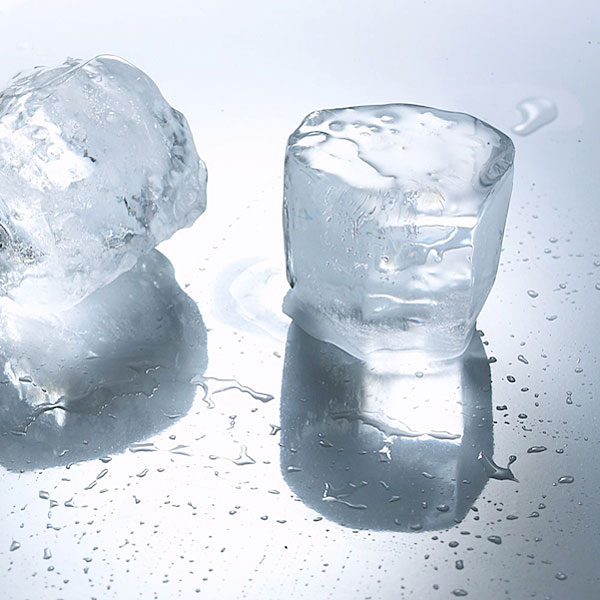
Did you know your tooth enamel is one of your body’s most durable and strongest parts? It makes sense because of all the daily work your teeth are tasked with. But what happens when your bad habits interfere with your oral health?
In this blog, we’ll specifically focus on one bad habit that can break even the healthiest teeth, causing more damage than you think (with good advice from your dentist.)
Sometimes, We All Use Our Teeth as Tools
Sometimes, we don’t use our teeth properly, which can damage them. Have you ever used your teeth to open a bag of snacks or plastic packaging quickly? (We’re looking at you, potato chips.) It’s important to be careful with our teeth to keep them safe. Using your teeth as tools is never a good idea!
But another common chewing faux pas we’re all guilty of (at some point) is chewing on ice. You know who you are, enjoying a few crunches with a cool beverage on a hot day. But should you worry about whether your crunching and ice-crushing damage your smile? Absolutely!
Why Chewing Cubes is One of the Worst Habits
The American Dental Association has ranked some of the most unhealthy habits for teeth, and chewing on ice cubes ranks near the top. They equate it to pushing two crystals together, i.e., your tooth enamel and ice. When you do this, chances are something is going to break. It’s cool when the cubes get crushed apart, but it’s not so fun when our teeth break down instead.
What is Pagophagia?
A little-known health condition called pagophagia takes ice chewing and routine eating to more than something that’s a bad habit. Some people have a condition in the form of pica, a form of eating disorder with nutritional deficiencies that can cause them to crave and eat items that aren’t food. One primary symptom is chewing on:
- All shapes and sizes of ice cubes
- Thinly shaved ice that’s similar to snow or frost
- Crushed ice that’s just the right consistency
If you’re feeling off or think you’re damaging your teeth with ice, it’s always best to schedule a consultation with your healthcare provider and check in and check up with our office.
What Causes Pagophagia?
One reason some people have pagophagia could be low iron, with all of the similar symptoms we just discussed. People with iron deficiency (or anemia) and pagophagia go hand in hand, with a study showing 16% of participants having both. Besides cravings for ice, symptoms of these conditions can include:
- Dry skin
- Pale skin
- Tiredness
- Dizziness
- Sore throat
- Fast heartbeat
- Depression
- Anxiety
We know these seem familiar for many other medical conditions, too, so it’s important to see your healthcare team if you can’t stop chewing on ice.
What Can Chewing Ice Do to My Teeth?
When you take a bite on every piece of ice, there’s a chance you’ll damage your teeth or the dental work you’ve already done. Just because ice melts doesn’t make it better for your teeth. It’s just as damaging as other hard foods or objects you wouldn’t want to bite down on. When you bite down, the force can:
- Fracture a tooth
- Cause a chip
- Break a filling
- Damage a crown
It goes back to the crystals: Your teeth are made up of thousands of tiny microscopic crystals with the enamel, and when you push ice crystals up against them, something’s got to give.
Why Chewing Ice Can Affect Your Gums Too
Besides heightened tooth sensitivity (which leads them open to decay), ice cubes can also leave your gum tissue vulnerable. The frigid temperature actually numbs your gums (like anywhere else you apply ice). This means you don’t feel something that could have caused a cut or abrasion injury that can lead to harmful gum disease.
Your gums are more sensitive than you think, with more susceptibility to:
- Food particles
- Sugary foods
- Dried fruits
- Hot/cold beverages
It’s always important to monitor how your gums feel and look when you brush and floss at home for preventive dental care.
Dentist Tips to Help You Break the Habit of Eating Ice
The California Association of Orthodontists recommends that the first step you take to figure out what you love ice is to “discover the cause.” If iron deficiency is to blame, iron supplements or medications are available with proper care from your doctor or therapist. Other tips include:
- Letting the ice melt (even for a little bit) on your tongue
- Eat tiny amounts of the smallest pieces of ice
- Replace the “crunch” with apple slices or baby carrots
Always keep your teeth in mind when biting down on hard foods, especially candies and ice.
It’s OK to Ask for Help
Chewing ice can be just something you like that’s not good for your teeth. Or, it could become part of something larger, a symptom that could signal something else is a little off in your body. Once you speak with your doctor and dentist, we can look at your teeth and gums — and then take it from there.
If you already know a tooth or previous dental work has been damaged, you can contact us for a visit. It’s always better to have it checked out and examined by our dentists to avoid any further damage. Talk to us today and ask questions!